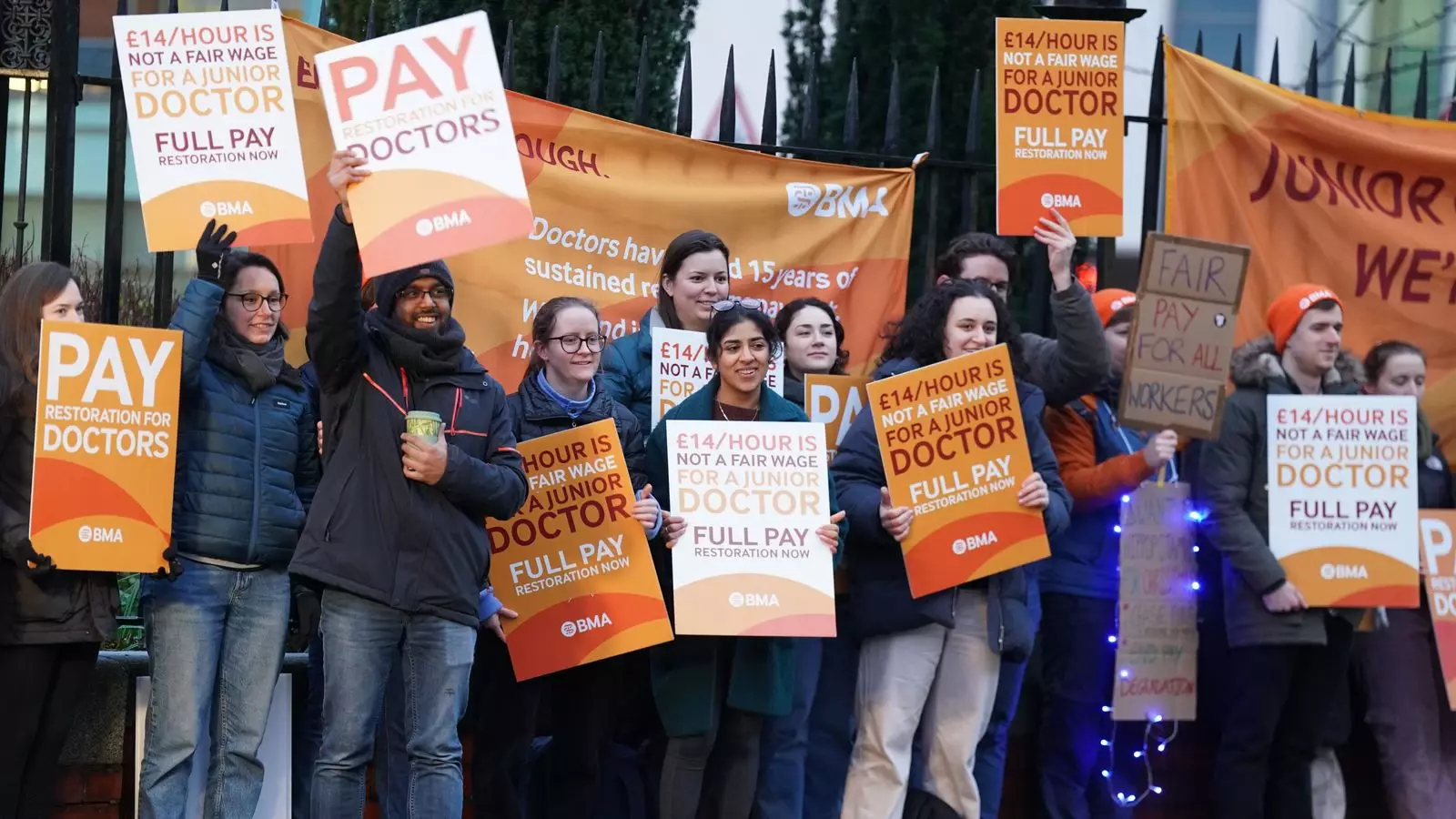The ongoing strikes by junior doctors in England have escalated the already tense relationship between the government and the British Medical Association (BMA). As the longest industrial action in the history of the NHS, the strikes have highlighted the deep-rooted issues regarding pay and working conditions that junior doctors face. Health Secretary Victoria Atkins has taken a firm stance by asserting that the NHS “doesn’t just belong” to junior doctors and cannot be controlled at their whim. On the other side, Professor Philip Banfield, BMA council chairman, has accused Downing Street of refusing to negotiate while the strikes are planned, calling it a “political choice”. This article delves into the heart of the matter and analyzes the conflicting perspectives.
Atkins emphasizes that the NHS is a shared resource and therefore cannot be controlled solely by the junior doctors’ committee. She urges the committee to call off the strikes so that negotiations can resume, stating that “the NHS belongs to us all”. While her point may be valid, her use of language could be seen as dismissive towards the concerns of the striking doctors. This dismissive tone is further reinforced when she suggests that negotiations can only occur once the strikes are called off, implying that the government holds the power in this situation.
The BMA, on the other hand, argues that the government is purposefully refusing to negotiate while the strikes are planned. Banfield criticizes the government for sticking to its “dogma” and wasting time and money. He points out that the government has previously waived this principle when negotiating with other professions, such as barristers. By highlighting this inconsistency, Banfield challenges the government’s approach and demands that they get back around the table and present a credible offer. However, while Banfield’s arguments may be valid, the BMA’s response lacks a cohesive strategy to counter the government’s stance effectively.
The crux of the dispute lies in the issues of pay and working conditions for junior doctors. The government offered an 8.8% pay rise last summer, with an additional 3% during the last round of negotiations. However, the BMA rejected this offer, arguing that it does not adequately compensate for the significant real-term pay cuts junior doctors have experienced since 2008. The BMA demands three main changes: full pay restoration, a new pay mechanism to prevent future pay decreases against inflation, and a reformed pay review body to ensure the recruitment and retention of junior doctors. These demands highlight the underlying issues that are driving the strikes and the dissatisfaction felt by junior doctors.
The strikes have had significant consequences for the NHS and its patients. Over one million appointments have been canceled or rescheduled due to strike actions in the past year, causing a substantial backlog for the NHS. The current strikes coincide with one of the busiest weeks of the year, exacerbating the situation. Consequently, emergency services in many hospitals are experiencing extreme pressure, and critical incidents have been declared. Winter bugs and patients seeking treatment delayed during the Christmas break add to the mounting challenges for healthcare providers. The strikes are not only affecting patient care but also placing an increased burden on healthcare professionals.
As the strikes continue, a contentious issue surrounding derogation requests has emerged. Hospitals in England have submitted over 20 requests to the BMA, asking for medics to be taken off the picket lines and returned to work due to safety concerns. However, the BMA has accused NHS England and some trusts of misusing the system and succumbing to political pressure. They argue that evidence of exhausting all other sources of staffing should be seen before medics are recalled. This disagreement highlights the lack of trust between the BMA and NHS leaders as well as the broader concerns regarding patient safety during the strikes.
Given the escalating tensions and the significant impact on patient care, it is crucial for both the government and the BMA to find a resolution to this crisis. The NHS is a vital institution that requires the cooperation of all parties to function effectively. The government must acknowledge the legitimate concerns of junior doctors and make a credible offer to address their demands. Simultaneously, the BMA should adopt a more strategic approach, presenting a clear plan for negotiations and leveraging public support. Ultimately, the interests of patients and the long-term sustainability of the NHS should guide the resolution process.
The strikes by junior doctors and the ensuing battle between the government and the BMA have shed light on the challenges within the NHS. The ownership of the NHS, issues of pay and conditions, and the impact on patient care are all fundamental aspects that need to be addressed. Both parties must move beyond their rigid positions, engage in constructive dialogue, and work towards a resolution that ensures the well-being of patients and the future of the NHS.

Leave a Reply